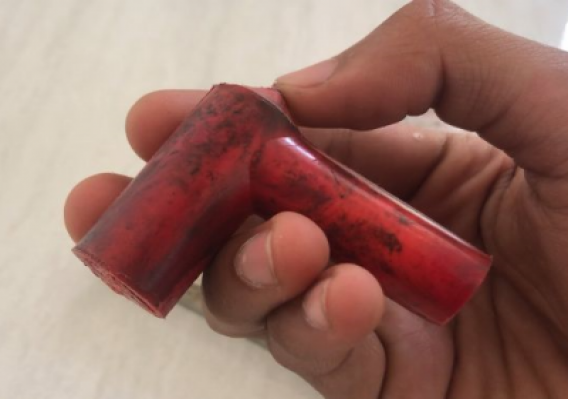Minimum resistance spark plug cap from plastic waste

Plastic has the characteristics of being light, easy to shape, and processed. Therefore, it is only natural that its use increases every year. However, the existing plastic waste has not been fully utilized on a large scale, so that it is increasingly piling up and overloaded. Various products from recycled plastic waste are currently more numerous and varied, ranging from handicrafts and paving blocks, and some even process them by pyrolysis into fuel. These various innovations are carried out to increase the possibility of plastic waste being reused or used as raw materials (materials) for valuable objects. UNY students who are members of the Psychoplast Research Team initiated the processing of used plastic differently, making spark plug caps with minimal resistance. They are Bima Agung Setyawan (Mechanical Engineering Education), Aji Nur Wijaksono (Physics Education), Fannisya Aulya Iskandar (English Education), and Afkari Zulaiha Rahmadiani (Geography Education).
"We chose HDPE (High-Density Polyethylene) plastic waste because it has the highest melting temperature among other types of plastic and this type is still rarely recycled," said Bima Agung Setyawan. In addition, plastic waste that is used as the material requires a sorting process, cleaning, shredding, and melting before being molded.
Afkari Zulaiha Rahmadiani said that this spark plug cap was named SPICoPlast, which stands for Minimum Resistance Spark Plug Ignition Connector from Plastic Waste. It has been tested using Dyno Test at the Mototech workshop in Yogyakarta with Honda Beat FI 2015 vehicle. This work won a Gold Award in the category Green Technology in the 2021 World Invention and Technology Expo (WINTEX) organized by the Indonesian Invention and Innovation Promotion Association (INNOPA). (Dedy; Tj. Lak)






